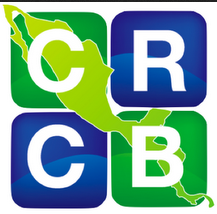The Basel Convention Regional Center for Central America and Mexico (CRCB-CAM), with assistance from the Central American Commission on Environment and Development (CCAD), will draft a Central American e-waste strategy that will promote a common approach to e-waste management and recovery in Belize, Costa Rica, Dominican Republic, El Salvador, Guatemala, Honduras, Nicaragua and Panama.
 18 December 2012: The Basel Convention Regional Center for Central America and Mexico (CRCB-CAM) will take the lead in drafting a Central American Waste Electronic and Electrical Equipment (WEEE) Strategy to tackle the growing e-waste problem in the eight member countries of the Central American Integration System (SICA) (Belize, Costa Rica, Dominican Republic, El Salvador, Guatemala, Honduras, Nicaragua and Panama).
18 December 2012: The Basel Convention Regional Center for Central America and Mexico (CRCB-CAM) will take the lead in drafting a Central American Waste Electronic and Electrical Equipment (WEEE) Strategy to tackle the growing e-waste problem in the eight member countries of the Central American Integration System (SICA) (Belize, Costa Rica, Dominican Republic, El Salvador, Guatemala, Honduras, Nicaragua and Panama).
The proposal responds to a June 2012 call by the Council of Ministers of the Central American Commission on Environment and Development (CCAD) for the region to prioritize the environmentally recovery of e-waste.
The CRCB-CAM will draft the WEEE Strategy with the assistance of CCAD and guidance from advisory committees comprised of national, regional and international governmental, industry, academic and nongovernmental organization experts, including those from other Basel Convention Regional Centers. The draft Strategy will be presented to a regional workshop that will include not only representatives from the SICA countries, but also experts from non-SICA countries that are considered leaders in e-waste management. A revised strategy would then be submitted to the CCAD Council of Ministers for approval in late 2013.
CRCB-CAM envisions harmonizing SICA member country approaches to e-waste management and embracing the possibility of a regional recovery system for e-waste in order to provide the necessary economies of scale, perhaps building on the existing “green lead” certified facilities in Costa Rica, Dominican Republic and Guatemala to handle lead-containing cathode ray tube (CRT) monitors. BCRC-CAM also is exploring with the government of El Salvador’s second largest municipality, Soyapango (population 500,000) the possibility of serving as a pilot municipality for implementing some of the concepts which may be included in the Strategy.
The drafting and approval of the Strategy will be paid for by a grant given to CRCB-CAM under the Energy and Climate Partnership of the Americas’ (ECPA) “Sustainable Communities in Central America and the Caribbean” project. [CRCB-CAM Press Release] [Approved Project Proposal (Spanish with English Abstract)]